I received my first Ham radio license when I was about 10 years old; the old-timers in the room thought it was pretty amusing to see some young kid coming in to take the tests.
I guess I wasn’t your ordinary ten-year-old kid, even back then I was into survival. I would order Cabelas’ catalogs and fishing magazines, making sure to circle all the gear that I needed to make my great getaway into the wild!
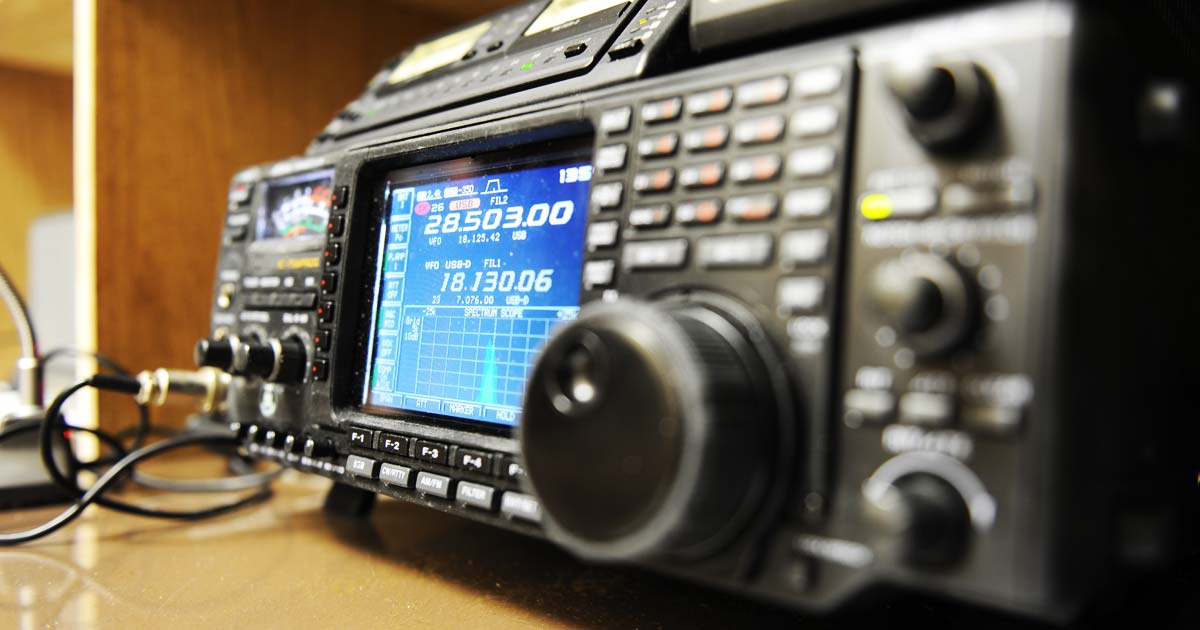
While I never trekked off and escaped into the wilderness, well, not at that age, HAM radio allowed me to take all sorts of wild adventures around the world. I stayed up until the wee hours of the night, using my Grandfather’s radios to talk to and listen to people from around the globe. It was amazing to be able to pick up the mic and talk to someone on the other side of the world.
This may not seem like a big deal to today’s generation who grew up with the internet and iPhones, but when it comes to preparedness Ham Radio is still very relevant and something I would argue is a skill every preparedness-minded person needs to learn.
Why Become a Ham Radio Operator?
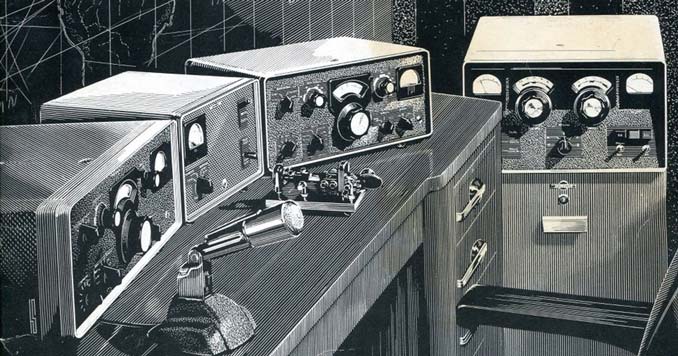
When it comes to Survival Communications, Amateur Radio (known affectionally as Ham Radio) is the way to go. It has a number of real-world survival advantages over cell phones, the internet, CB, GMRS, FRS, and other radios or forms of communication.
To begin with, the knowledge that you will gain as a licensed ham radio operator will allow you to listen to and communicate with people throughout the world. While that might not sound important as you are starting at this article on the internet, during a disaster situation where the internet goes down and all other forms of communication fail, do you have a plan for gathering relevant survival-related information or making contact with those in your group or family?
In a survival situation, knowledge is a very valuable asset. The ability to know what’s going on around you will be extremely important in just about any survival situation you might find yourself in. Having this knowledge will definitely give you a leg up in a survival situation.
With little power, and a minimal amount of equipment, Ham Radio allows you to communicate with other Hams, receive radio broadcasts from around the world, and gather important intel during times of crisis – even when cell towers and other forms of communication have failed.
In an emergency situation, you will be able to stay informed on what’s going on locally, nationally, and worldwide. Even in today’s modern age of high-tech gadgets, cell phones, and email, when the grid goes down it’s often HAM Radio operators who still provide emergency communications until things return to normal.
During almost every major disaster, local officials rely heavily on Hams to coordinate rescues and organize search and rescue missions throughout the affected areas. In fact, when regular communications systems like cellular networks, Internet access points, and public safety radio systems are compromised, ham radio can act as a substitute until normal communications have been repaired.
The FCC allows Hams to assist agencies like FEMA, the National Weather Service, and the military during times of crisis. Their ability to communicate when the grid goes down is one of the major reasons I advise our readers to look into Ham Radio.
Requirements to become a Ham Radio Operator:
Unlike when I got my license, The FCC’s new licensing requirements have been simplified and now only require you to pass a single 35-question written exam; no Morse code required (although I do advise you learn it, as it has a number of advantages in an emergency situation).
The tests are made up of questions relating to things like standard operating procedures, identifying radio frequencies, understanding radio propagation, electronic circuits, and electrical principles, antenna theory, equipment repair, non-voice communications, and emergency preparedness.
Why you need to be Licensed:
I often have people ask me if they really need to go through the hassle of becoming a licensed Amateur Radio Operator. Some people argue that during a SHTF situation having a License is meaningless. While this may be true, the knowledge that you’ll obtain while studying to get your license is well worth the time and the effort.
You will learn things like the:
- The basics of how to operate your radio
- Which bands are open during different atmospheric conditions
- How to reliably use your radio during an emergency
- How to build a variety of basic antennas.
In my opinion, studying for the test and going through the process is the only way to ensure you’ll be able to use these skills when it counts. You will be far better off learning these critical skills now instead of haphazardly trying to figure how to use your radio during an emergency situation.
If you are serious about survival communication, I strongly suggest that you look into becoming a Ham Radio Operator.
Licensing Study Guides and Material
- Ham Radio For Dummies
- The ARRL Antenna Book: The Ultimate Reference for Amateur Radio Antennas
- ARRL Ham Radio License Manual
Other Important Ham Radio Resources:
- Communications Monitoring: The Importance of Radio Monitoring and Intelligence Gathering During Crisis Situations
- Ham Radio FAQs: Everything you need to know about Amateur Radio
- Emergency Communication: Frequencies to Monitor when Things Go Bad
- The ARRL Antenna Book: The Ultimate Reference for Amateur Radio Antennas
- The ARRL Ham Radio License Manual
- Morse Code Teacher
What Ham Radio Gear do you need to ensure your ability to communicate during a disaster?
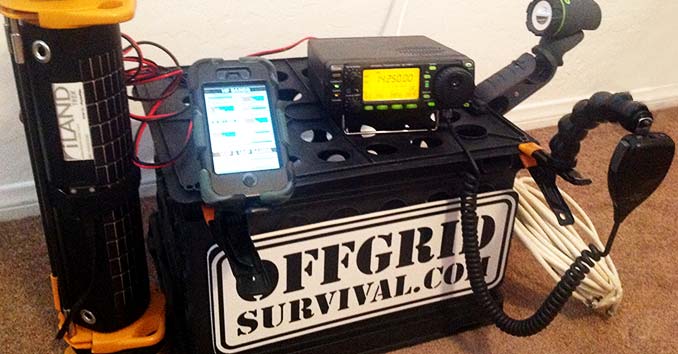
Once you have your license, you are going to need a couple of things to help ensure your ability to communicate:
- Radios – A VHF/UHF band Radio for Local Coms (Can also be used with linked repeaters for state and regional Coms) and an HF (High Frequency) Radio for local, nationwide and worldwide communications.
- A Power Supply – We suggest having a power supply for your base station, a mobile vehicle setup and some solar/battery setups for bugout situation or field communications.
- Antennas – This is a huge topic in and of itself but all of your radios are going to need antennas and it’s a good idea to learn as much as you can about Antenna Theory and building your own antennas.
Recommended Ham Radios – VHF/UHF band Radios and a Good HF (High Frequency) Radio
Let’s start out with covering our local and statewide coms because when it comes down to the reality of survival communications most disasters that you will face will be local in nature and the ability to get updates on what’s going down in your neck of the woods is going to play a vital role in your ability to survive.
VHF/UHF Band Radios
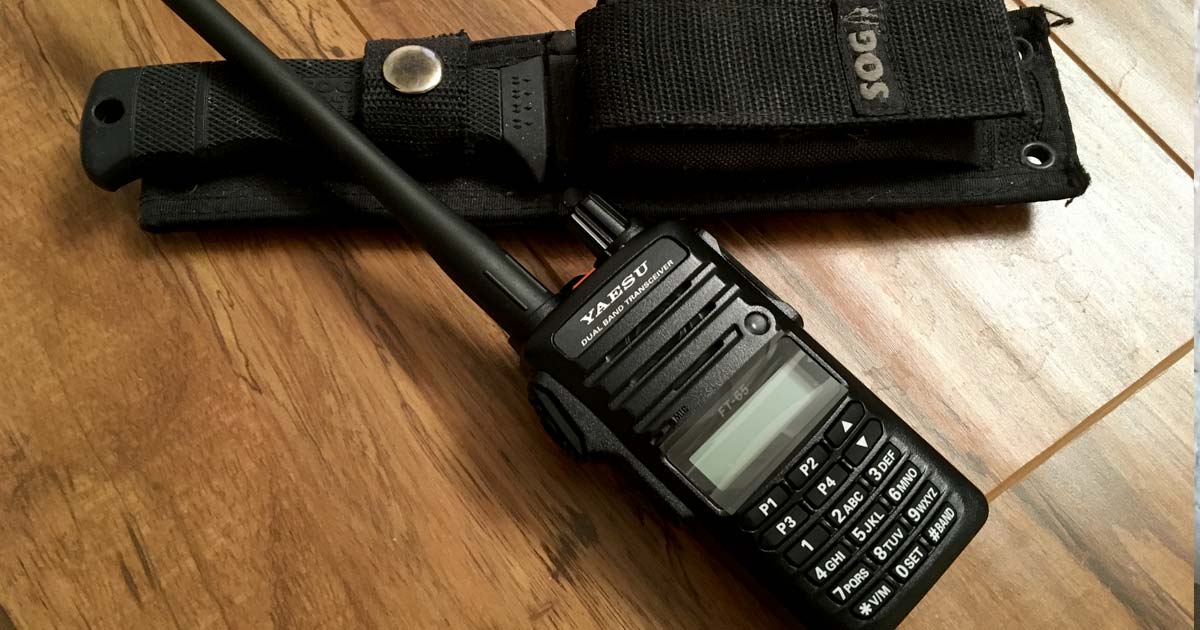
The first thing you want to do is make sure you have a radio that covers the 2-meter band and 70CM ham bands, these types of radios will usually cover 136-174 MHz & 400-480 MHz FM, where you can find everything from local fire and police, weather radio, and of course the ham bands and repeater networks that you will utilize to communicate locally or regionally through repeater networks that are linked to other areas of the country.
Here are a couple of Dual Band Radios that we like:
- The Yaesu FT-60: This is probably the #1 most recommended radio by Hams. The thing is rock solid dependable and it’s going to be hard to find a better handheld dual-band radio.
- The Yaesu FT-65: While not as good as the FT-60, this radio still rocks and it’s going to be a good option for those watching their budget. You can read our full review on this radio here.
- BaoFeng UV-5R: I thought long and hard on whether or not to include this radio — if you look at my reviews and other articles on this site you know I am not a fan of this radio. That being said they are cheap as hell, they allow you to send on more than just ham bands, and if you’re really broke then they are better than nothing – but I would not trust my life with one!
- Yaesu FT-2980R Mobile Rig: For a vehicle setup or a home base station, the FT-2980R is going to give you a hell of a lot more power than a hand-held rig and is something we recommend having both at home and in your vehicle.
HF (High Frequency) Radio
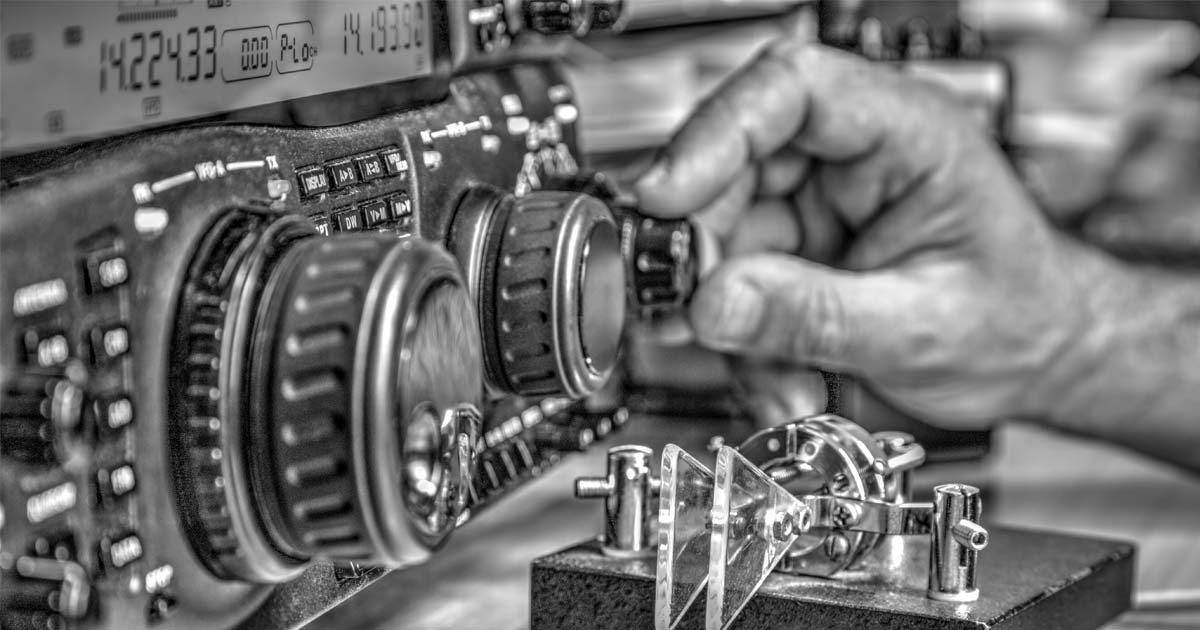
Now we want to start looking at being able to gather intel from around the world; that’s why we think every good Emergency Communication setup needs to include an HF (High Frequency) Radio – preferable something that covers 6-180 meters. Here you will not only find a number of Ham Bands that will allow you to send and receive information locally, nationwide and worldwide, but you will also find worldwide shortwave broadcasts, military and government stations, and a huge range of emergency broadcasts systems.
Here are a couple of HF Radios that we like:
- ICOM IC-7300: This radio does everything and then some! It’s a great 100W base station with a built-in antenna tuner that receives from 0.030 to 74.800 MHZ. It operates on SSB, CW, RTTY, AM and FM modes.
- ICOM IC-718 – For those who are on a budget, the Icom IC-718 is a good compromise.
- FT891 Yaesu – If you are looking for a small HF Rig that can be used either as a base station or a mobile rig then we recommend taking a look at the FT891.
For more detailed information on HAM Radio and Emergency Communications check out our other site hamradioprepper.com or read our article on The Importance of Radio Monitoring and Intelligence Gathering During Crisis Situations
For more information on Ham Radio and Emergency Communication, check out these articles:
- Prepper Radio: The No-BS Ham Radio Technician Exam Prep Guide
Your Key to Passing the Amateur Radio Technician License Test and Taking Your Emergency Communication Skills to the Next Level - Emergency Communications When TSHTF
- Ham Radio Cheat Sheet
- Situational Intel: Knowledge is Power during a Crisis
- Ham Radio FAQs
- The ¼ Wave Droopy Ground Plane 2 Meter Antenna


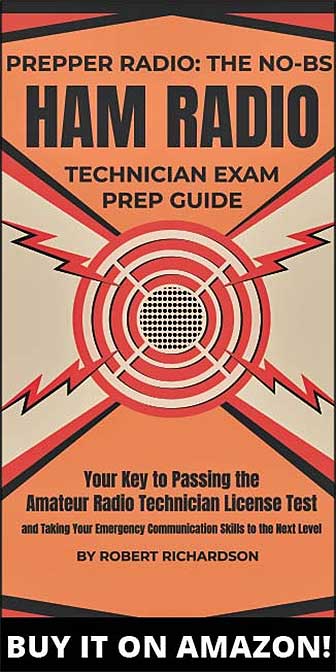
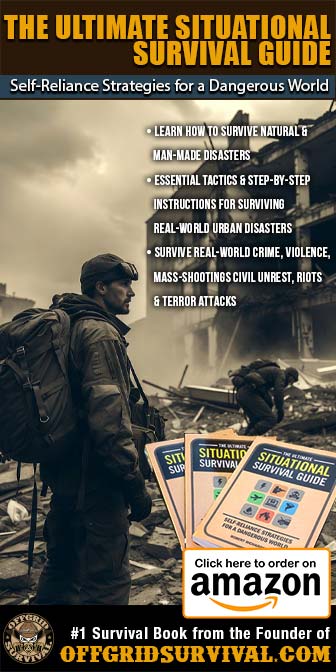


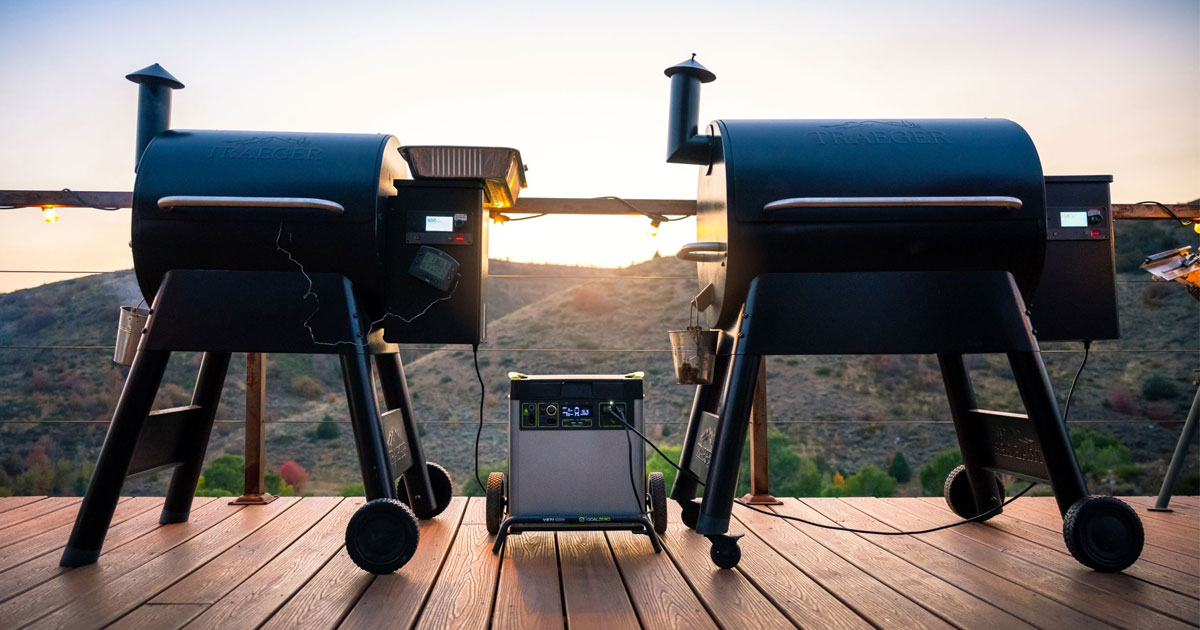
very informational, i hope to take the courses and get my license
Wow, even ham operators use the ‘ol fall back line “I would not trust my life with one” I thought only gun guys used that line! You probably do not eat right, do not exercise enough, and do not buy premium ammo in bilk. Probably do not have the car with the best crash protection. Just an excuse to buy something the wife would nix if you sold it any other way.
Great information:)